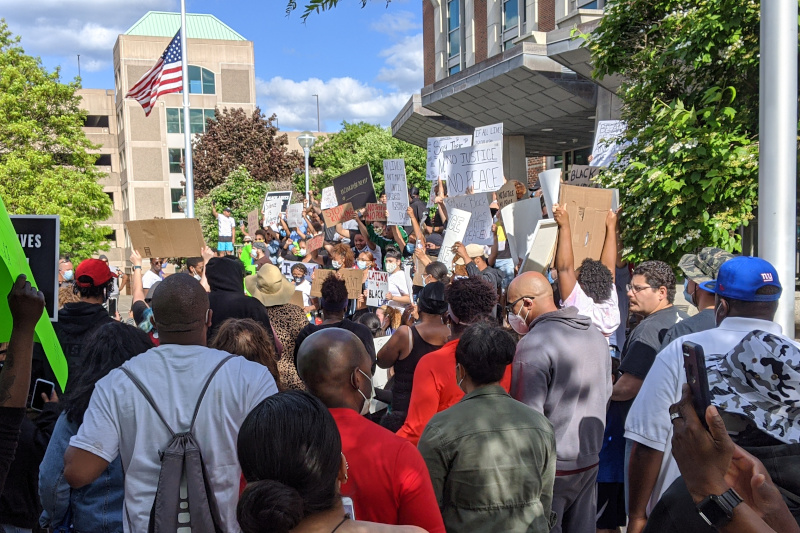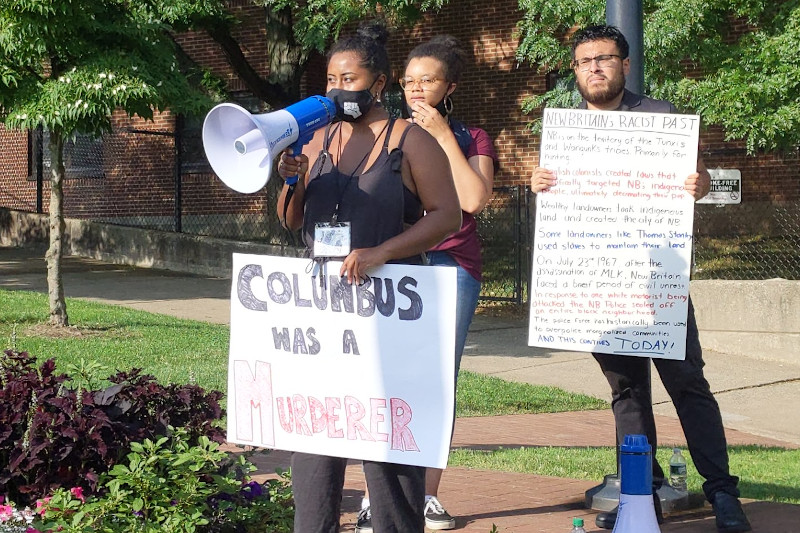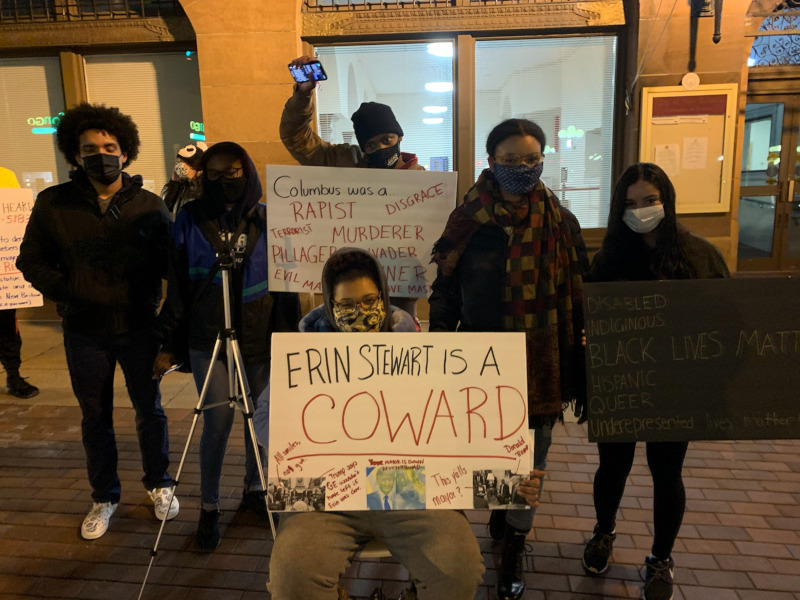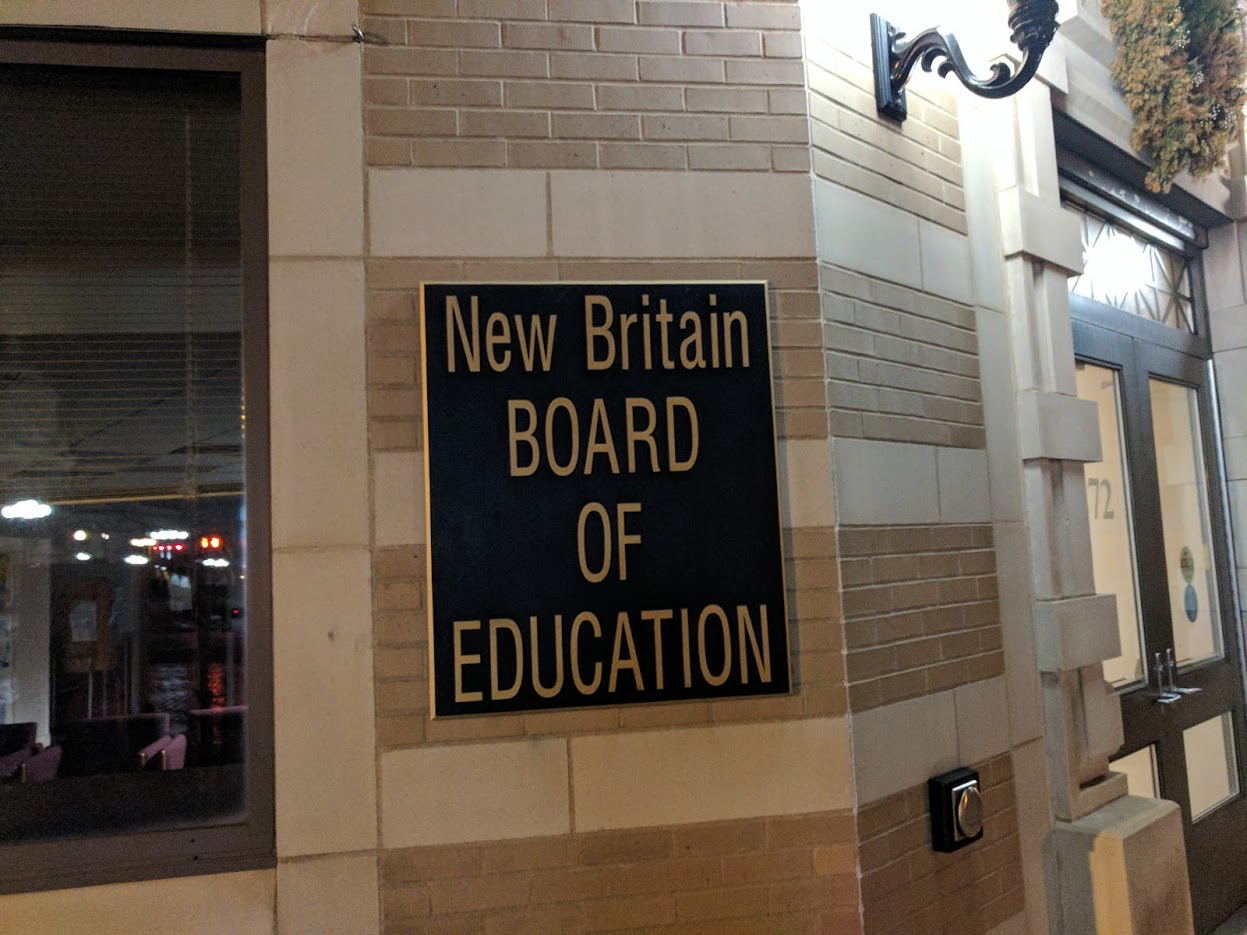Staff Reports
A Republican Board of Education member is proposing that the Board consider renaming Indigenous Peoples Day currently on the school district calendar as a school holiday on Monday, October 10th.
In July 2020, as the nation engaged in a wide discussion of systemic racism after the murder of George Floyd by a Minneapolis police officer, the Board of Education changed the city schools’ recognition of Columbus Day to Indigenous People Day. The vote in favor of the change was 7 to 2 at that time.
The new proposal being put forward by Board of Education member Anthony Kane (R) comes during the 2022 election season as Republicans in Connecticut divisively seek to stoke notoriously racist crime politics and drive up fears on wedge social and cultural issues.
The proposal is on the agenda of the Monday, October 3rd Board of Education meeting for discussion and “possible action” to rename Indigenous Peoples Day one week before the school holiday occurs. The agenda for Monday’s meeting on the district’s website says that the meeting is to be at the Board of Education building at 272 Main Street. BOE Member Kane’s proposed change has been included without following the customary process of vetting changes in committee before it goes to the full 10-member board.
In 2021, Republican Mayor Stewart swept in a win by Republicans for the Board of Education. With five of the ten seats up for election that year, the election of the maximum possible number of three out of five candidates having been Republicans means that the Board now has a 5 to 5 party split – giving increased weight to conservative forces in the decision making over the school system.
After the murder of Floyd by a white Minneapolis police officer, the nationwide protest movement included a strong movement in New Britain, starting with a massive protest march on May 31, 2020, in which perhaps two thousand people marched through the streets of New Britain, demanding change in society to end racist inequality and violence.

That 2020 summer of protest against systemic racism included a focus on bringing down symbols of racism and colonialism, which renewed attention to accounts from a priest, Bartolome de las Casas, and others, telling about enslavement, murder, rape and other brutality upon native peoples under Christopher Columbus’ conquests. That led to successful calls for statues of him being removed in some cities.

The New Britain Racial Justice Coalition led a protest campaign calling for the New Britain statue of Christopher Columbus to be removed from its location at McCabe Park, at the corner of Main and North streets. While the opposition to removing the statue was criticized as being marred by racist commentary, the City Council initially voted for moving the statue.
However Republican Mayor Erin Stewart vetoed the decision to move the statue, a veto sustained by Stewart’s Republican Council caucus.

The Board of Education policy that was approved in 2020 by a 7 to 2 vote had noted that,
In this time of increased awareness and in alignment with district priorities that include using an equity lens and anti-racism in all aspects of our practice, it behooves the New Britain Board of Education and the CSDNB to acknowledge that Black, Brown, Indigenous, and People of Color (BBIPOC) still suffer from the ramifications of the colonial oppression that ensued at the hands of European explorers like Columbus.
“We have a responsibility,” the policy said, “to reframe Euro-centric history by centering the experiences of the Indigenous Peoples in the United States and internationally – many of whom still struggle with income inequality, sovereignty, and equity in having their basic needs met in the health, education, and other sectors.”
The 2020 policy of the Board noted that the change to recognizing Indigenous People Day aligned well with the New Britain school district’s overall plans to change its curriculum to include greater emphasis on African American and Latino studies.
“We have much work to do to counter 500+ years of a history whose aftermath many in our community still experience today,” the 2020 policy change said, “but we can start by joining the growing list of Connecticut cities and school districts making this change, including CREC (2019), West Hartford (2018), and Bridgeport (2015).”




